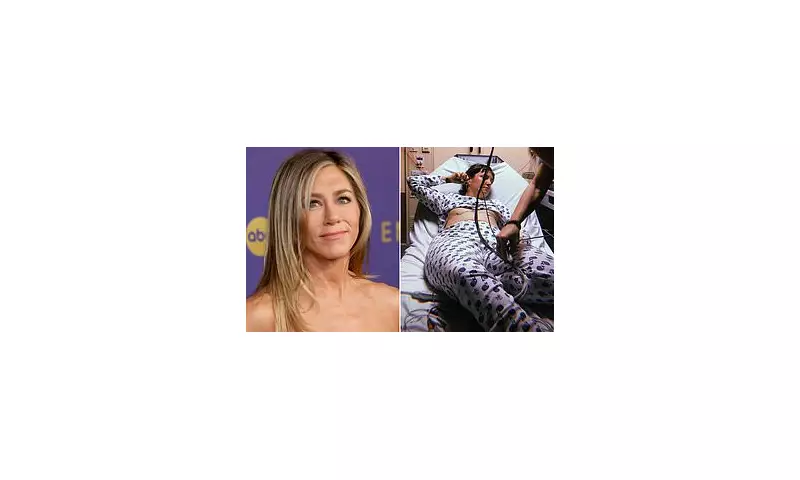
In an industry where personal lives are often public property, Hollywood has maintained one stubborn taboo: the deeply private struggles of infertility and baby loss. Despite NHS statistics revealing that one in seven couples face conception challenges, the topic has remained largely unspoken among celebrities - until now.
The Silence Breakers: Stars Sharing Their Journeys
A growing number of high-profile women are courageously opening up about their fertility battles, transforming private pain into public conversation. Their stories are helping to dismantle the stigma surrounding reproductive health issues that affect millions of couples across the UK and beyond.
Jennifer Aniston has emerged as one of the most vocal advocates for breaking Hollywood's silence on infertility. The Friends actress recently disclosed she endured a twenty-year secret battle to conceive, undergoing unsuccessful IVF treatments and exploring every possible avenue to achieve pregnancy.
For decades, Aniston faced persistent pregnancy speculation and damaging narratives suggesting she prioritized career over motherhood. In a candid interview with Harper's Bazaar UK, she addressed these misconceptions directly: 'They didn't know my story, or what I'd been going through over the past 20 years to try to pursue a family, because I don't go out there and tell them my medical woes.'
The actress, now 55, reflected on the emotional toll of constant public scrutiny: 'It does affect me - I'm just a human being. We're all human beings.' Her journey included multiple IVF attempts, traditional Chinese remedies, and eventual acceptance that 'the ship has sailed' on biological motherhood.
Trauma and Recovery: Personal Stories of Loss
Kelly Brook recently shared the devastating experience of losing her baby at six months pregnant in 2011. The presenter described the miscarriage as 'the most traumatic, horrific thing that I've ever been through,' noting that the scarring event left her 'traumatised' and ultimately contributed to the end of her relationship with former fiancé Thom Evans.
Now married to Jeremy Parisi, Brook revealed the couple made a conscious decision not to have children together, though she admits the reality 'weighs on her mind.' She reflected: 'The time has probably run out, I don't know, I just have to get my head around it.'
Lena Dunham faced her own fertility challenges, undergoing a total hysterectomy at just 31 years old after enduring severe endometriosis-related pain. The Girls creator described feeling 'betrayed by her body' and coming to terms with never becoming a biological mother.
Despite exploring options including egg retrieval from her remaining ovary and surrogacy, Dunham ultimately found peace in adoption possibilities. She told People magazine that IVF 'destroyed my body,' adding that the physical and emotional toll made repeating the process impossible.
Broader Perspectives on Family Building
The conversation extends beyond Hollywood, with public figures from various fields sharing their experiences. Elizabeth Day, journalist and host of the How To Fail podcast, spent twelve years trying to conceive through two IVF cycles, miscarriages, egg freezing and uterine surgery before 'letting go of the dream of conventional biological motherhood.'
Selena Gomez has been transparent about her inability to carry children due to lupus-related health concerns. The singer acknowledged grieving this reality before embracing alternative paths to motherhood through surrogacy or adoption.
Even country music legend Dolly Parton has spoken about her fertility journey, revealing she underwent a partial hysterectomy at 36 after being diagnosed with endometriosis. Despite never having children with her late husband Carl Dean, Parton expressed no regrets about their decision.
Rare male perspectives are also emerging, with poet Benjamin Zephaniah sharing his discovery that he produces no sperm. His openness helps challenge the silence surrounding male infertility, which often remains unaddressed in public discourse.
The IVF Reality: Understanding the Process
In-vitro fertilisation (IVF) involves implanting a fertilised egg into a woman's womb when natural conception proves challenging. The procedure can use eggs and sperm from couples or donors, with NHS guidelines recommending treatment for women under 43 who have struggled to conceive for two years.
Private IVF treatment averages £3,348 per cycle in the UK, with success rates declining significantly with age:
- 29% for women under 35
- 23% for women aged 35-37
- 15% for women aged 38-39
- 9% for women aged 40-42
- 3% for women aged 43-44
- 2% for women over 44
Since the first successful IVF birth in 1978, approximately eight million babies have been born through the procedure worldwide.
As these celebrity stories demonstrate, the path to parenthood varies dramatically, and the decision to share these deeply personal journeys is helping to normalise conversations about fertility struggles that affect countless individuals and couples globally.





